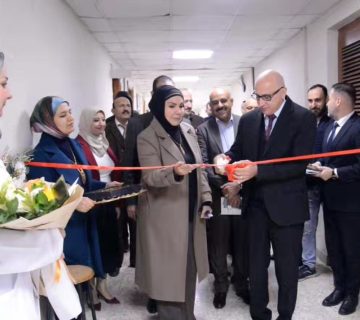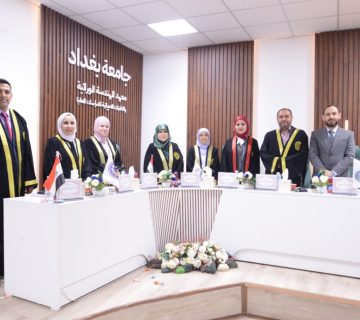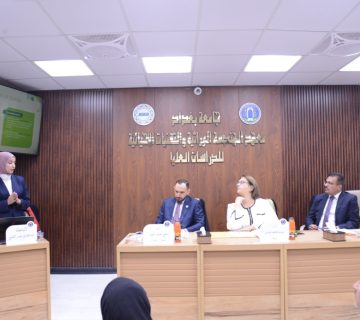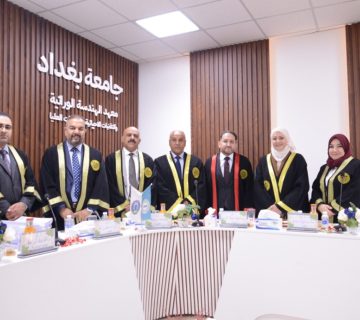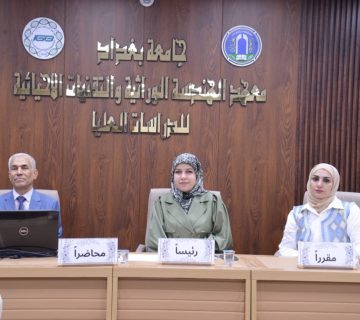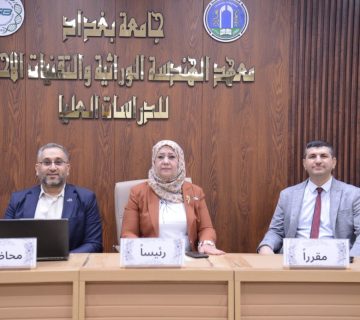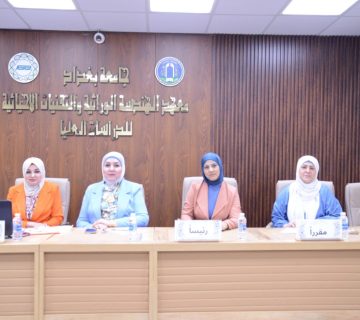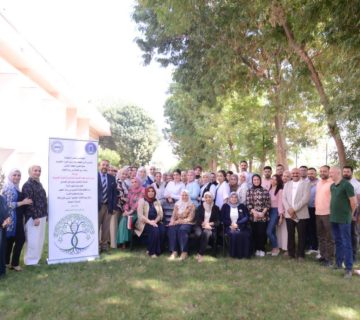The Institute of Genetic Engineering and Biotechnology for Postgraduate Studies / University of Baghdad held a scientific symposium entitled “Assembling a new genome version as a side job for analyzing NGS sequence data,” and it was presented by the lecturer at the institute, Dr. Wissam Hazem Salo, while the secretary of the institute’s council Dr. “Wasan Abdul Razzaq Gharbi” was the rapporteur of the symposium, with the participation of a number of professors and employees of the institute, in the council’s secretariat hall.
The symposium aimed to delve deeper into the complex process of genome assembly, highlighting its integration as a complementary task within the workflow for analyzing next generation sequencing (NGS) data and also clarifying the vital role of genome assembly in genomic research and its implications for various applications.
It also aimed to understand the process of assembling the genome and its importance in genomic research, highlight the challenges and limitations associated with assembling genomes from NGS data, discuss the strategies and algorithms used in assembling new genome versions, provide a look at the applications and repercussions of assembling new genome versions in biological research, and discuss future trends and developments in technologies and genome assembly techniques.
The symposium included an explanation of the main points addressing the basic principles of genome assembly, the challenges associated with genome assembly from NGS data, and the strategies used to overcome these challenges.
The symposium emphasized the importance of cooperation between experts in the field of biocomputing and biologists to effectively deal with complex genome assembly tasks.
During the symposium, real-world examples and case studies were presented to illustrate successful genome assembly projects, while also addressing future trends and developments in genome assembly techniques and techniques.
The lecture emphasized exploring the synergistic relationship between genome assembly and NGS data analysis, enabling them to apply this knowledge in their own research efforts to advance genomic science and its diverse applications.
The symposium recommended that attendees be encouraged to familiarize themselves with the basic concepts of genomics and next generation sequencing (NGS) technologies before the lecture to improve understanding.
It also recommended providing resources such as literature, online tutorials, and software tools to explore genome assembly techniques and NGS data analysis methods more deeply, as well as emphasizing the importance of collaboration between experts in the field of biocomputing, biologists, geneticists, and computational scientists to address the complex challenges of genome assembly effectively.

Comments are disabled.

